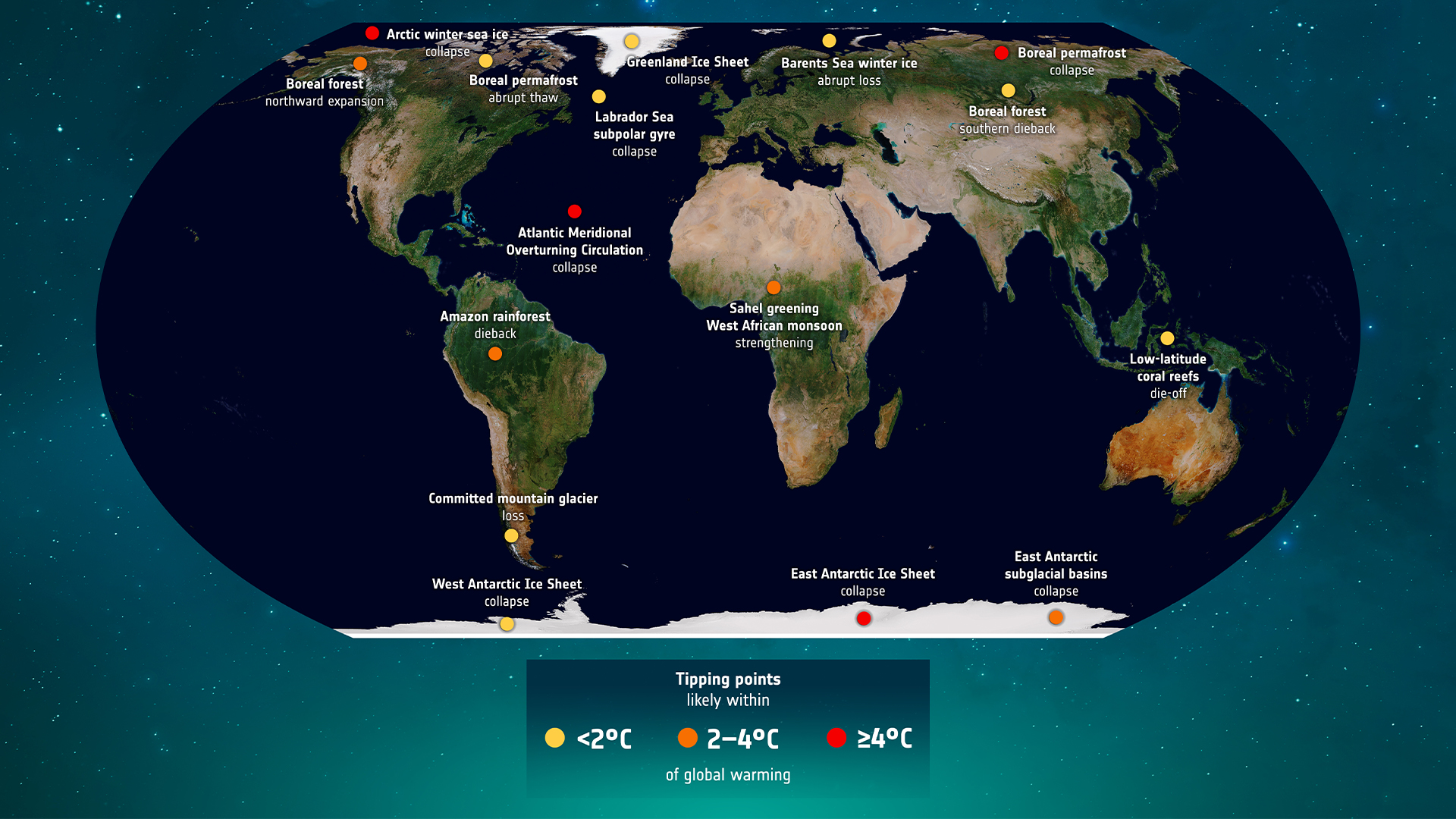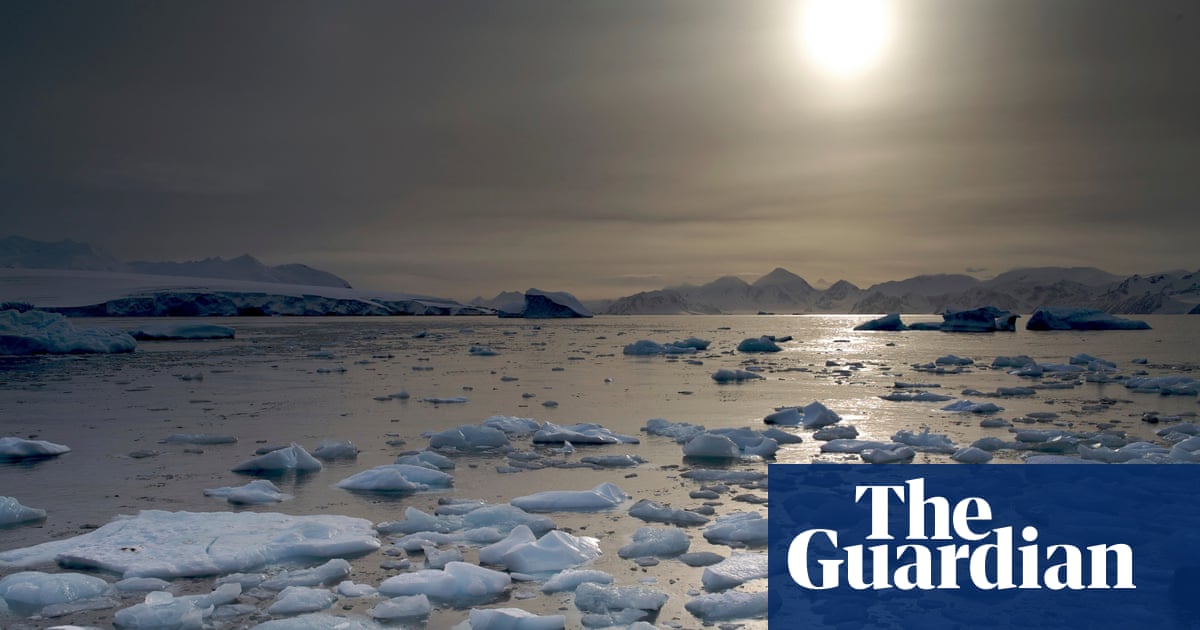A new report by over 200 scientists issues a warning about the Earth approaching critical tipping points. The report, titled Global Tipping Points, shows the dangers posed by climate change, indicating that Earth is on the verge of crossing critical thresholds that could unleash catastrophic consequences.

Also Read: Mount Merapi Erupts: 11 Climbers Dead, 12 Missing on Indonesian Volcano
This urgent call to action comes at a time, coinciding with the 28th United Nations Climate Change Conference (COP28) in Dubai.
The report shows the concept of tipping points, where small disruptions in the balance of Earth’s ecosystems could trigger abrupt changes, akin to a dangerous domino effect.
These tipping points, if crossed, could result in impacts on natural systems vital to human livelihoods. The urgency to confront these threats head-on and intensify efforts to prevent them is underlined by the severity of the risks outlined in the report.
The scientific assessment identifies five major tipping points already at risk, including the loss of the Greenland ice sheet, the demise of the West Antarctic ice sheet, the die-off of tropical coral reefs, the abrupt thaw of Arctic permafrost, and the slowing of the North Atlantic subpolar gyre.
These natural thresholds, if crossed, could set off a chain reaction of irreversible changes with consequences for ecosystems, societies, and economies.
The report goes on to warn that three more tipping points may be reached in the 2030s if global temperatures rise by 1.5 degrees Celsius above pre-industrial levels.
These include the die-off of mangroves and seagrass meadows, the vulnerability of boreal forests, and the risks associated with increasing temperatures.
Also Read: Thousands Protest in Brussels, Demand Action Against Climate Change
The report underlines the reality of rising global fossil-fuel emissions. This year’s emissions are projected to hit a record high of roughly 37 billion tonnes of carbon dioxide, a 1.1% increase from 2022.
The Climate Action Tracker warns that current emission reduction pledges under the Paris agreement could still result in a temperature increase of 2.5 degrees Celsius by 2100, surpassing the agreed-upon target of limiting global warming to 1.5 degrees Celsius.
Among the most immediate dangers identified in the report are the threats to coral reefs worldwide, already under stress due to current levels of warming.
The collapse of the ice sheets in Greenland and Antarctica poses risk of irreversible sea-level rise, impacting coastal communities.
Northern forests, mangroves, and other coastal ecosystems are also in peril with just a 1.5-degree Celsius increase above pre-industrial levels.
The report transformation of large parts of the Amazon rainforest into savannah with as little as a 2-degree Celsius increase in temperature.
This not only disrupts life across South America but also contributes to a cycle of releasing more carbon into the atmosphere.
Also Read: Cyclone Michaung: flights Cancelled, Schools Shut as Rain Lashes Chennai
The report says that humanity’s decisions over the next decade or two will have impact for the planet for thousands of years. The governance systems currently in place are inadequate for addressing a crisis of this magnitude.
While the report outlines the catastrophic risks posed by negative tipping points, it also offers a hope by identifying positive tipping points in social, political, and economic systems.
These positive tipping points, if triggered, could lead to transformative benefits for the climate. The decline in the cost of wind and solar power, coupled with increased investments in clean energy away from fossil fuels, serves as an example of a positive tipping point already in motion.
Questions are raised about whether addressing tipping points truly makes a difference in driving social and political action.
Climate scientist Michael Oppenheimer expresses skepticism, suggesting that the increasing frequency of extreme weather events may have a more impact on public perception and government action.
The report warns of devastating domino effects, including mass displacement, political instability, and financial collapse.
The existing global governance frameworks are deemed insufficient to address the scale of these threats. The report advocates for a shift in governance approaches to effectively tackle the challenges posed by climate tipping points.
Also Read: COP28 Set to Happen in Dubai from November 28 to December 12






















